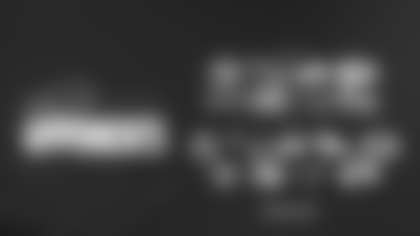He's been a finalist for five straight years for induction into the Pro Football Hall of Fame. Falling short four previous times hasn't been easy, but with other receivers amongst the group of 15 finalists yet again this year, there's a prevailing feeling that they're pulling precious votes away from each other in the selection process. But Reed stands a decent chance of being the last receiver standing when the 2011 Hall of Fame class is announced this weekend.
Over the past four years in which Reed has been a finalist there has been at least one receiver in the finalist pool with him. This year is no different with both Tim Brown and Cris Carter among the final 15 with Reed.
In 2007 Reed was eliminated in the first reduction vote from 15 to 10 with Michael Irvin and Art Monk advancing. Irvin would be the only one selected for enshrinement.
In 2008 Reed was again bumped in the initial vote to reduce the pool to 10 candidates with Cris Carter and Ark Monk advancing. Monk finally was selected for enshrinement after eight attempts as a finalist.
In 2009 senior nominee Bob Hayes, a wide receiver, was chosen for induction with Reed again among the first cuts in the reduction vote from 15 to 10.
Last year appeared to be the biggest long shot of them all with Jerry Rice among the finalists. And though Rice was the only receiver to be selected for induction, there was a noticeable development as to how Reed fared.
Reed for the first time made it past the first cut from 15 to 10. Even more encouraging was the fact that Brown and Carter did not.
While the leanings of the Hall of Fame Voting Committee can vary from year to year it does demonstrate that there is genuine support for Reed to be inducted, just not 80 percent support… yet.
Where Reed does have the necessary support is with his former teammates, two of which are Hall of Famers.
"What's the criteria for a Hall of Fame career at receiver," asked 2002 Hall of Famer Jim Kelly rhetorically. "Longevity. Andre played for 16 years going over the middle facing guys slike Steve Atwater and Ronnie Lott. Receivers are supposed to catch the football. Isn't that one of the criteria? Andre had 951 catches. He averaged 70 catches a year. How about Pro Bowls? Andre made seven in a row.
"If that's not the criteria, if those aren't the credentials to get yourself in the Pro Football Hall of Fame, something is sadly wrong with the voting system out there."
Despite being retired for more than a decade the Bills all-time leading receiver still stands 10th in NFL history in receptions, 11th in receiving yards and 12th in touchdown catches. Amongst receivers already in the Hall of Fame Reed would rank second in catches and third in receiving yards behind only Rice and former teammate James Lofton.
With the 44 members of the voting committee sure to debate the merits of Brown, Carter and Reed to determine who emerges from that trio in a reduction vote from 15 to 10, Brown will be relying on superior receiving yardage numbers which stand fourth all-time (14,934). Carter will be relying on his touchdown numbers which also rank fourth in league history (130).
What Reed will be relying on is his performance in big games, most notably the 1992 Wild Card comeback game over Houston. With Jim Kelly and Thurman Thomas both sidelined due to injury, Reed helped lead the greatest comeback in NFL history scoring three touchdowns to erase a 35-3 third quarter deficit to propel the Bills to their third straight Super Bowl.
"He was one of the big differences in that comeback game against the Oilers, because he never died, he never gave up, he continued to go, and the momentum he created just kept everybody going," said Kelly.
It's why Reed ranks fourth in league history in postseason receiving yards (1,229), third in 100-yard postseason receiving games (5) and third in postseason receptions (85).
Reed's unique strength of gaining yards after the catch however, is something only one other receiver in his era arguably did better and he was inducted last summer.
"His run after catch ability is what sets him apart," said ThurmanThomas, member of the 2007 Hall of Fame class. "I've heard a lot of people mention that his numbers are a lot like Art Monk. But Art Monk caught a lot of passes in the flat. Andre caught a lot of passes across the middle. There's a big difference there. In my mind Andre is superior and Monk is in (the Hall of Fame)."
"You talk to anybody who played against Andre Reed, going across the middle, there's not a better receiver in the NFL that had a better run after catch than Andre Reed," Kelly said. "His run-after-catch ability was unmatched."
The ultimate decision will be up to the voters and there is a logjam at receiver that will need to be addressed. Reed has been eligible for induction for six years, Carter for four and Brown for two.
There can be no more than five modern era candidates chosen for enshrinement. The 2011 Pro Football Hall of Fame class will be announced on Saturday Feb. 5 at 7 pm on NFL Network.





